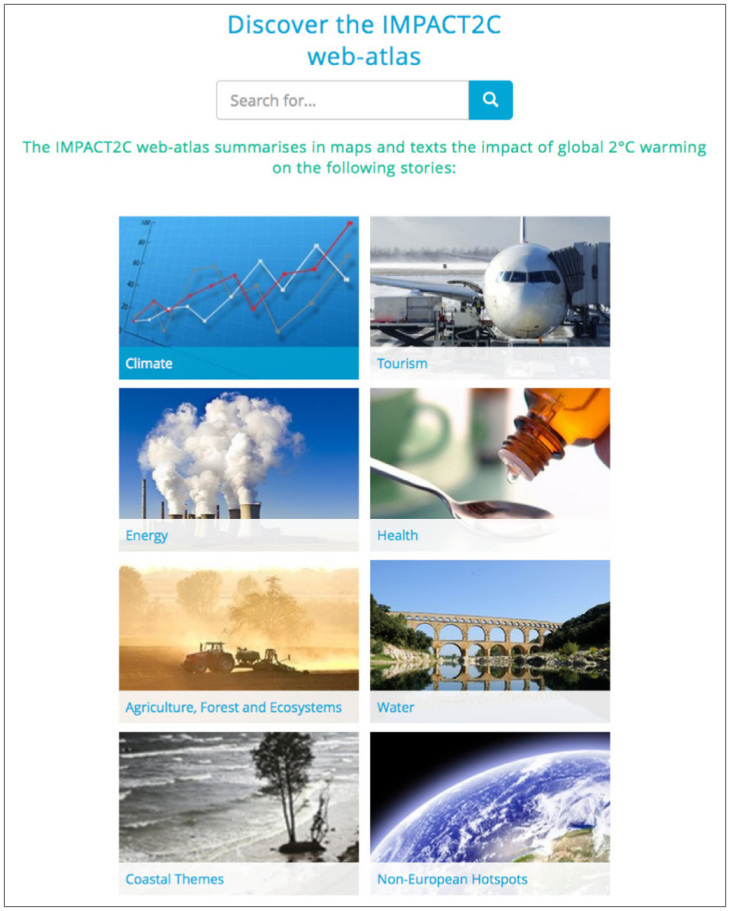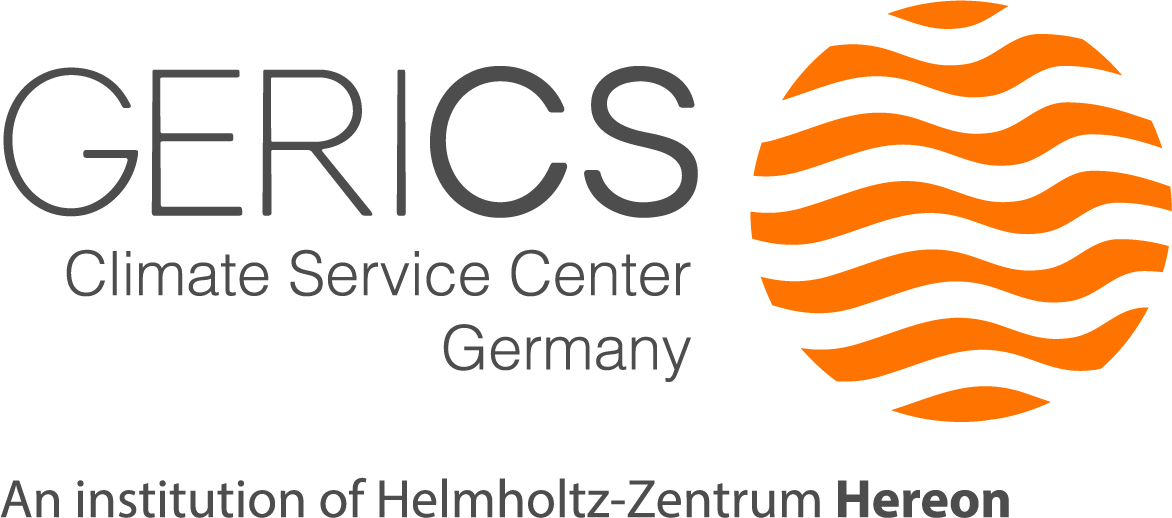Interactive web-atlas shows the impacts of a 2°C global warming on various European sectors and some key vulnerable regions outside Europe

Starting today, you only need a few mouse clicks to inform yourself about potential impacts of a 2°C global warming throughout Europe. The Climate Service Center Germany (GERICS) released the new interactive IMPACT2C web-atlas. The atlas is based on the comprehensive research results from the EU-funded IMPACT2C project, wherein researchers from twelve European and four Asian and African countries have collaborated on investigating the potential impacts of a 2°C global warming on the various European sectors (climate, energy, health, agriculture, forestry and ecosystems, water, tourism, coasts) and some key vulnerable regions outside Europe.
“The IMPACT2C results clearly and distinctly show that a global warming of 2°C is going to change many facets of life. This will influence not only Africa, Bangladesh nor low-lying regions and the island states, but these changes will also affect Europe, albeit weaker than the previously mentioned regions. To vividly illustrate these findings, easily accessible by the general public and to sensitize decision-makers for the challenges and opportunities of climate change, we have designed and implemented the IMPACT2C web-atlas”, said Dr. Daniela Jacob, the Director of GERICS and the Coordinator of the IMPACT2C project.
Exploring through the IMAPCT2C web-atlas allows the viewers to quickly get user-tailored information about how a 2°C global warming might affect different sectors or regions throughout Europe and for some of the most vulnerable regions of the globe. Navigation within the atlas is guided by changing picture motives and smart linking. Informative maps and figures support the information uptake.
While designing the IMPACT2C web-atlas, focus was set to create a user-oriented, self-explaining and intuitive tool. For beginners, support on the usage and content of the web-atlas is provided by a short and easy-understandable tutorial.
The atlas features climate change impacts for a wide range of sectors. Some of the findings are expected, while some are more surprising. As an example, the total agricultural production throughout Europe may increase by 30% compared to today. “Actually, climate change is seen to have little negative impact for agricultural production as a whole. However, this projected result is based on the assumption of continued improvements in technology. This demonstrates how important it is to consider all components of a system when talking about possible impacts from climate change”, stresses Dr. Jacob.
The climate scientist hopes that the IMPACT2C project as well as the web-atlas will contribute to the background information on which the discussions are based on during the COP21. “It is absolutely necessary to agree on a common 2°C target during the negotiations in Paris. If global warming will be more than 2°C, it will be much more challenging to handle the consequences”, emphasizes Dr. Jacob. This is also shown in the IMPACT2C web-atlas for selected case studies.
